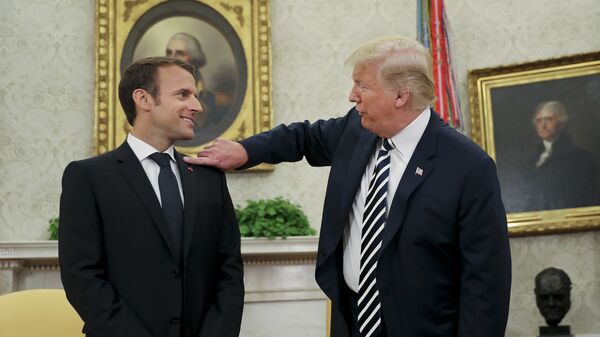The US president has kept European allies at bay while negotiating a trade agreement with China that is poised to end an ongoing tariff row to stop them from benefiting from what he calls “my deal”, The Wall Street Journal reports, citing European officials from several countries.
The sources told the outlet that French President Emmanuel Macron had suggested the US and EU unite forces to negotiate the trade deal with China when he visited the White House in April 2018 after Donald Trump had introduced higher aluminium and steel tariffs. Trump rejected Macron’s idea but reportedly promised to update Paris on the results of the US-China talks.
However, as The Wall Street Journal reports, he did not keep his promise, holding back the content of the draft agreement with Beijing. The outlet points out, citing European officials that Trump’s approach might contrast with what they hear from members of his administration.
The WSJ also emphasises that the leading EU economies are following the course of the talks to ensure their result complies with the rules of the World Trade Organisation, including a ban on any member state to grant another member tariff cuts without running them by a selected number of WTO countries.
READ MORE: China Snaps Up More Gold as US Trade War Pushes Country Away From Dollar
The seventh round of high-level China-US trade consultations was held in Washington on 21-24 February. Upon their completion, Chinese Foreign Minister Wang Yi said that its outcomes gave reason to hope Beijing and Washington would achieve stability in their bilateral relations. However, Chinese Commerce Minister Zhong Shan later stated that the talks had been "extremely difficult" due to the large differences between the two countries, adding that Chinese and US working groups were continuing consultations as a lot of questions remain unresolved.
Nevertheless, Trump tweeted after the talks that he would delay an increase in tariffs on $200 billion worth of Chinese goods planned for 1 March. He also brought up plans for a summit with Chinese President Xi Jinping to conclude an agreement to end the trade standoff, "assuming both sides make additional progress".
China and the United States have been engaged in a trade conflict since last June when Trump announced the United States would subject $50 billion worth of Chinese goods to 25 percent tariffs in a bid to fix the US-Chinese trade deficit. Since then, the two countries have exchanged several rounds of trade tariffs.


